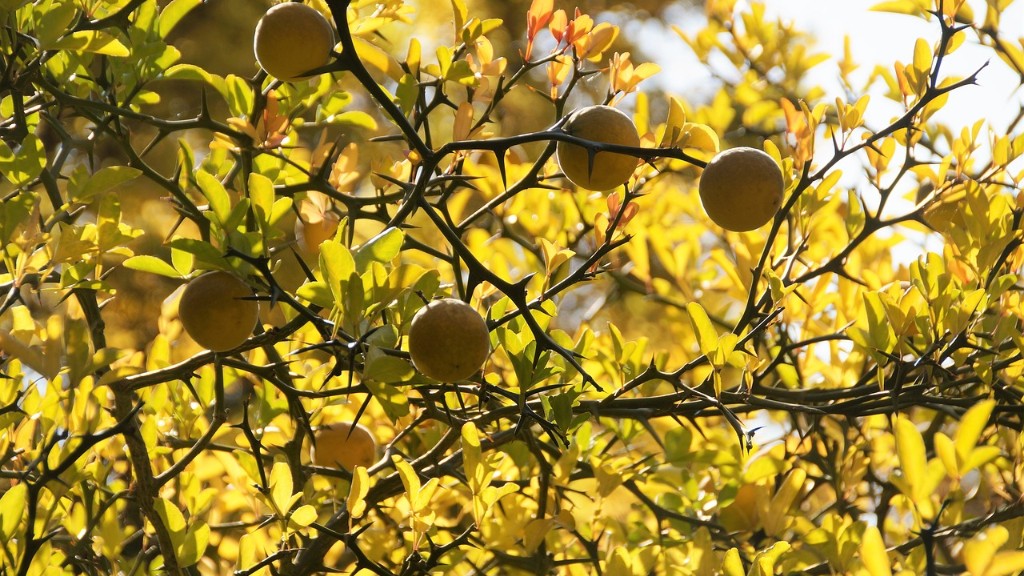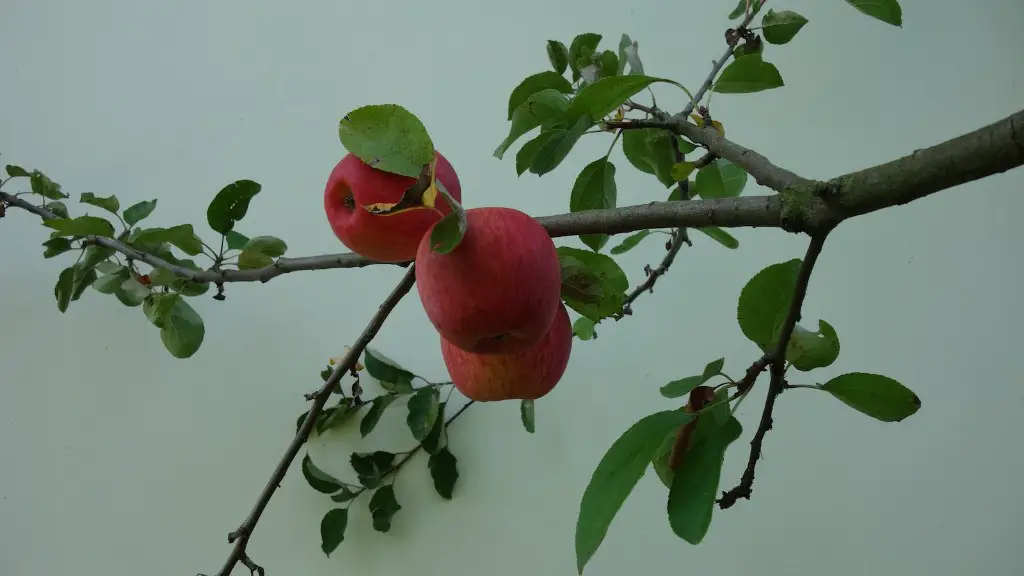It can be frustrating when your lemon tree is not bearing fruit as expected. Growing a healthy lemon tree involves several important steps; failure to undertake any of these steps can result in a tree that does not bear fruit. Most commonly, lemon trees that aren’t bearing fruit lack adequate sunlight and water, have inadequate soil nutrition, experience pollination problems, or suffer from pest and disease issues. Let’s take a closer look at these four potential causes.
Lack of Sunlight and Water
Lack of sunlight and water can cause lemon trees to fail to bear fruit. Lemon trees need natural sunlight to provide energy for photosynthesis, as well as adequate water in order to grow and produce fruit. Lemon trees should get at least six to eight hours of sunlight a day, and should be watered on a consistent basis. It’s important to keep an eye on soil moisture content to ensure that the tree doesn’t dry out.
Inadequate Soil Nutrition
Inadequate soil nutrition is another possible reason a lemon tree might not be bearing fruit. While lemon trees do need nitrogen, phosphorus, and other essential plant nutrients to grow and bear fruit, too much fertilizer is just as harmful as too little. Over fertilization can burn roots and leave the tree unable to absorb nutrients, leading to the lack of fruit production.
Pollination Problems
Pollination is an essential part of the growth and development of any citrus fruit, lemon trees included. If the tree is not receiving enough pollination, it won’t be able to set fruit. Lemon trees should be placed outside or near an open window in order to receive enough pollination. Additionally, appropriate pollinating insects, such as bees, should be introduced to help pollinate the tree.
Pest and Disease Issues
Finally, pest and disease issues can prevent the successful growth and development of a lemon tree, and thus inhibit fruit production. Pests such as aphids, whiteflies, and mealybugs can cause a host of problems, including impaired nutrient uptake, and diseases such as root rot, leaf spot, and blight can wreak havoc on a lemon tree’s root system and growth process. Routine inspection and application of proper pesticides and fungicides can help reduce the risk of these problems.
Preventative Care
To ensure that a lemon tree remains healthy and bears the expected number of fruits, certain preventative measures should be taken. Pruning a lemon tree on a regular basis to maintain shape and growth is an important part of keeping a tree healthy. Additionally, when planting lemon trees, it’s important to choose an appropriate soil type and location that receives plenty of sunlight throughout the day. Finally, oranges, grapefruits, and other citrus fruits should be grown in the same vicinity as the lemon tree to ensure adequate pollination.
Stress Management
Sometimes, even when all the preventative care has been taken, lemon trees can become stressed. Stress factors such as an overly wet environment, or an improperly managed mulch layer can cause the tree to become stressed and struggle to perform. Addressing and minimizing these stress factors can help the tree grow and develop. Additionally, fertilizer should be used sparingly and watered in thoroughly to avoid over-fertilization.
Fertilization
When fertilizing a lemon tree, it’s important to choose the right fertilizer. Slow-release fertilizers should be used as they provide a steady, extended-release of essential nutrients and minerals. Additionally, a soil testing kit should be used to assess the soil’s current nutrient levels and identify any deficiencies. This can help determine the best fertilizer to use for the tree, as well as inform any other necessary changes to the soil.
Pest and Disease Control
In order to keep pests and diseases at bay, routine monitoring of the lemon tree is necessary, as well as preventative measures to avoid pest and disease infestations. Proper application of pesticides, fungicides, and insecticides can help to keep pests and diseases in check. Additionally, organic pesticides, such as garlic and neem oil can be used to help reduce the risk of infestations. Plant maintenance such as pruning and proper irrigation can also help to minimize the risk of problems.
Conclusion
To ensure that your lemon tree remains healthy and bears fruit as expected, it’s important to follow several steps. These include ensuring an adequate water and sunlight supply, proper fertilization and pest and disease control, as well as adequate soil nutrition and stress management. Taking the time to properly care for a lemon tree can help to ensure that it remains healthy and produces an expected yield of fruit.

